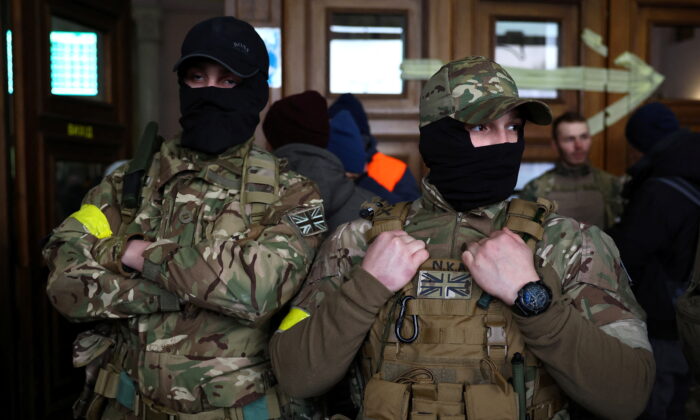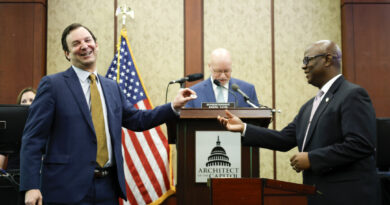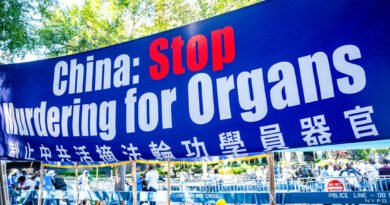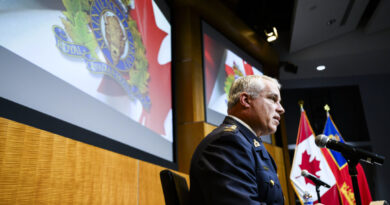Moscow Warns French Troops in Ukraine Will Be Considered Legitimate Targets
Russia has reportedly summoned the French and British ambassadors to provide explanations for what they describe as ‘bellicose statements’ coming from Paris and London.
If French troops are deployed to Ukraine, Moscow has warned that they will be considered legitimate military targets, according to Russia’s foreign ministry.
On May 8, ministry spokeswoman Maria Zakharova stated, “If the French are present in the conflict zone, they will inevitably be targeted by Russian armed forces.”
She further mentioned to reporters, “Paris is already aware of this situation.”
Previously, in January, Russia announced a targeted attack on a facility in Ukraine holding “foreign fighters” in the Kharkiv region, and later claimed that 60 “French mercenaries” had been killed in the strike, without substantiating evidence.
In response, France denied the accusation, with the foreign ministry declaring that France does not have mercenaries in Ukraine or elsewhere.
Ms. Zakharova’s comments come following weeks of increasingly aggressive rhetoric from French President Emmanuel Macron.
In February, the French president informed EU leaders that considering the deployment of European troops to Ukraine “shouldn’t be discounted.”
In March, he shared with French opposition leaders that Paris should not hold back in its response to Russia’s invasion of eastern Ukraine, which has been ongoing for three years.
In a recent conversation with The Economist, President Macron reiterated the idea of sending troops, especially if Ukrainian defense lines collapse.
“I’m not ruling out anything, as we are facing someone who is also not ruling out anything,” stated President Macron to the magazine.
He further mentioned, “If Russia decides to escalate, we will also have to consider this issue [regarding troop deployment].”
According to President Macron, his repeated suggestions for deploying troops aim to keep Moscow uncertain about Western intentions.
“Mr. Macron explains his statements by mentioning a desire to create a sort of ‘strategic ambiguity’ for Russia,” informed Ms. Zakharova to reporters.
“However, we need to disappoint him,” she expressed. “The situation is clear to us.”
Additionally, she highlighted that Russian forces are observing an increasing number of French nationals among those who have perished on the battleground in Ukraine.
The Epoch Times was unable to independently confirm Ms. Zakharova’s claim.

British Brinksmanship
President Macron is not the only European leader making aggressive declarations.
Recently, British Foreign Secretary David Cameron caused a stir by stating that Kyiv has the right to utilize UK-supplied missile systems to target sites in Russia.
He mentioned to Reuters, “Ukraine possesses this right.”
“Just as Russia is conducting attacks within Ukraine, it is understandable why Ukraine feels compelled to defend itself,” remarked Mr. Cameron.
Moscow regularly accuses the West of pushing the world towards the brink of nuclear conflict by providing Kyiv with long-range weaponry to target locations inside Russian territory.
Earlier in the month, Russia reported stopping a long-range missile attack—using U.S.-made ATACMS missiles—on several airfields in Crimea.
Kyiv later confirmed launching several long-range missiles at Crimea from the southern Kherson region of Ukraine.
Crimea was effectively annexed by Moscow in 2014 and is now considered part of the Russian Federation.
The delivery of long-range missile systems to Ukraine, including ATACMS and UK-made Storm Shadows, is the subject of debate among Kyiv’s allies.
Supporters argue that Ukraine’s strategic use of long-range weapons will allow it to target previously unreachable Russian supply lines, railway networks, and air bases.
However, critics believe that long-range missile strikes—particularly on Russian soil—could escalate the current conflict into a continental war.
Meanwhile, Kyiv has reiterated its commitment not to use Western-supplied long-range weapons to target sites beyond its recognized borders.

Russian Ultimatum
Earlier this week, Moscow disclosed plans to rehearse the deployment of its nuclear forces in response to “provocative statements by Western officials.”
According to Russia’s defense ministry, the drills—which will involve aircraft and naval forces—are intended to “enhance the readiness of non-strategic nuclear forces to achieve military objectives.”
Moscow later confirmed that the drills were in direct response to recent calls by Western leaders, including President Macron, to send troops to Ukraine.
These calls are said to “merit a special response,” according to a Kremlin spokesperson speaking to reporters.
Andriy Yusov, a spokesperson for Ukraine’s military intelligence agency, labeled the planned drills as an example of “nuclear blackmail” by Russia.
On May 6, Nigel Casey, the UK’s ambassador to Russia, was reportedly asked by Moscow to address Mr. Cameron’s recent comments.
“The ambassador was urged to contemplate the catastrophic consequences of such hostile actions by London and to deny the incendiary statements made by the head of the Foreign Office,” as stated by Russia’s foreign ministry in a release.
Moscow warned Mr. Casey that should British weapons be used to target Russian territory, Russia would retaliate against British military assets both inside and outside Ukraine.
However, London denied that Mr. Casey was summoned or reprimanded by Russia’s foreign ministry.
According to the British foreign office, the ambassador attended a “diplomatic meeting” with Russian officials, during which he reiterated the UK’s support for Ukraine.
Similarly, Pierre Levy, France’s envoy to Moscow, was also summoned by Russia’s foreign ministry on May 6.
Per the ministry, Mr. Levy was requested to clarify “the increasingly aggressive statements by the French leadership and mounting evidence of France’s involvement in the conflict around Ukraine.”
Paris has chosen to not disclose what occurred during the meeting.
Shortly after, President Macron emphasized that his country is “not at war with Russia or the Russian people.”
During a joint press conference with his Chinese counterpart, he added, “We are also not seeking a change of power in Russia.”
Reuters contributed to this report.





